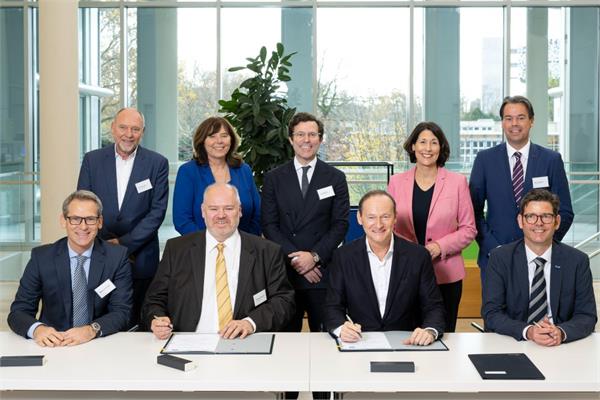
With a potential output of 300 megawatts of thermal energy, the site of BASF could employ around 4 million metric tons every year.
Vulcan and BASF have recently announced that both companies have signed a memorandum of understanding to explore the use of geothermal energy at the Ludwigshafen (Germany) chemical site, as part of a strategic partnership. The deal was reached in the presence of Daniela Schmitt, the Minister of Economic Affairs, Transport, Agriculture and Viniculture for Rhineland-Palatinate.
“BASF is a leading global chemical company and plays a very important role in the region. We are delighted to support BASF in its efforts to achieve a carbon-neutral energy supply for its headquarters in Ludwigshafen. The partnership is a clear demonstration that the combination of geothermal energy and carbon-neutral lithium production not only makes environmental sense but can deliver economic benefits for both companies as well as positive impacts for the people in the region,” has stated Cris Moreno, the CEO of Vulcan Energy Resources.
The partners aim to jointly evaluate opportunities for harnessing natural heat from deep geothermal sources, in order to supply the largest plant of BASF with renewable energy
which is capable of meeting base load power requirements in the future. The next step is to carry out a seismic survey to investigate the geothermal conditions in a subregion of the Upper Rhine Graben. The surrounding urban centres of Frankenthal and Ludwigshafen will also benefit from the sustainable heat, so the municipalities are participating in the necessary seismic surveys as a first step. Vulcan will be the active project developer, carrying out the exploration and acting as the technical lead. The initial exploratory work is currently scheduled to begin in early 2025.
“It is good that the private sector is taking steps to develop innovative technologies with a view to successfully transforming our economy and improving our international competitiveness. By using domestic energy resources, we can reduce our dependency on energy imports and be less vulnerable to the highly volatile energy prices on the world market,” has declared Schmitt. “That is why I strongly welcome the collaborative projects being undertaken by the two companies with the involvement of the wider economy and local municipalities. Our goal must be to establish Germany and the State of Rhineland-Palatinate as internationally competitive industrial locations with internationally competitive energy prices.”
The geology of the Upper Rhine Graben gives the Rhine Valley region an enormous geothermal potential. Assuming that the exploratory work is successful, heat pumps could be used to generate CO2-free steam. With a potential output of 300 megawatts of thermal energy, around 4 million metric tons could be produced every year – without the use of fossil fuels, preventing the emission of approximately 800,000 metric tons of CO₂.
“We want to supply our Ludwigshafen site with CO2-free steam in the future. In addition to harnessing the waste heat from our production facilities, where possible, we want to consider renewable heat sources from geothermal structures. In Vulcan, we have a partner on board who has the necessary technological expertise in exploiting geothermal heat to plan and implement such a complex project,” has commented Uwe Liebelt, the president of the European Verbund sites for BASF SE. “Deep geothermal energy not only offers enormous potential for our own energy transformation. If the project is successful, we will set an excellent example for how we can shape the energy transition in the Rhine-Neckar Metropolitan Region through close cooperation between politicians, energy suppliers, and the industrial sector and leverage benefits for all parties.”